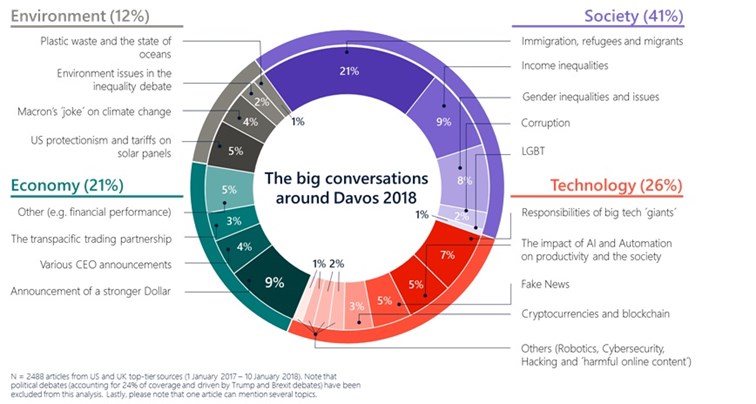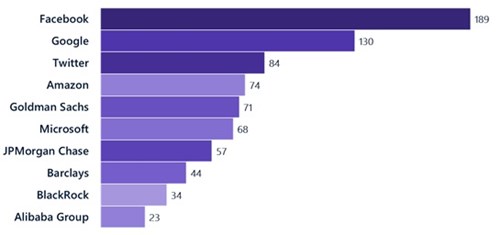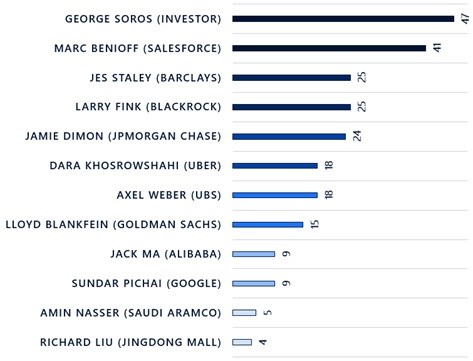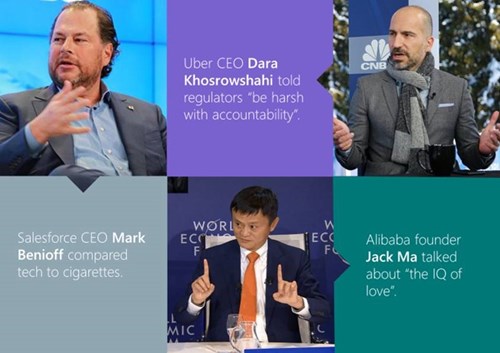Tech issues dominated media coverage of Davos and the discussion on social media – according to analysis by Brunswick.
Research carried out by Remy Smida, Associate, Brunswick Insight
Aside from coverage of Trump and the snowy weather, it was issues associated with the tech industry that generated the most comment and conversation around last week’s World Economic Forum Annual Meeting. In previous years, tech companies have confidently positioned themselves as drivers of social progress, the solution to many of society’s big challenges; this year, they were firmly on the defensive.




